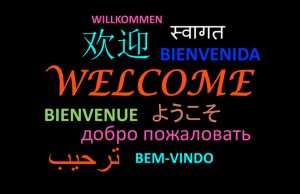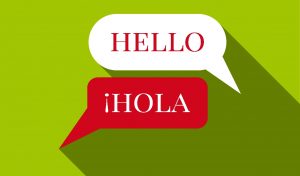Differences Between Mother Tongue and First Language: Human people express themselves as members of a social group and participants in its culture through a system of traditional spoken, manual (signed), or written symbols. Language has several objectives, including communication, identity expression, play, imaginative expression, and emotional release.
‘What is your mother tongue?’ ‘What is your native language?’ or ‘What is your first language?’ are common questions. The majority of people believe they all imply the same thing, and they are correct in the majority of circumstances. However, in other circumstances, particularly when a person speaks more than one language, the phrases have various implications and might signify different things.
Children learn words, sentences, and eventually entire languages as they get older. These are usually the languages that are spoken at home. This language would be their native tongue, mother tongue, and first language in the most basic conditions.
When they enter school, though, some of these youngsters will begin to learn a new language. They may even grow more fluent in this language than in the one they speak at home, as it is their major source of instruction. Furthermore, as kids get older, they may acquire other languages, becoming bilingual, trilingual, or even multilingual. This is the point when the distinction between mother tongue and first language begins to blur.
Recommended: Most difficult languages to learn in thr world
What Is Mother Tongue?
The word “mother tongue” refers to a person’s first language, which is the language they acquired at birth. Also known as the dominant language, native tongue, and home language. The term “mother tongue” is used to refer to not only the language learned from one’s mother but also the speaker’s dominant and home language; not only the first language acquired chronologically but also the first in terms of importance and the speaker’s ability to master its linguistic and communicative aspects.

Enculturation, or the growth of a person into a specific system of linguistic perception of the world, and involvement in the centuries-old history of linguistic formation, is enabled by the mother tongue language community, or the language spoken in an area.
Also see: Best English Speaking Countries in Africa
What Is First Language?
The first language, on the other hand, might relate to the person’s first language. This may be the same as the native language or mother tongue, or it may be something else entirely. The phrase can also refer to a person’s primary language, which is the one with which they are most comfortable. Some people describe this as the language in which a person thinks, i.e. the language in which the person’s thoughts are expressed.

This might be the same language as the individual’s native or mother tongue, or it could be a different language that a person has mastered.
People who are bilingual or multilingual as children may have more than one native language or mother tongue. Alternatively, people may associate one language as their mother tongue, another as their native language, and still another as their first language, depending on their comfort level.
Also see: Advantages And Disadvantages Of Being A Lawyer
Difference Between Mother Tongue And First Language
When we think of our mother tongue, we usually think of a common language spoken by a cultural group or by our forefathers and mothers. The word “mother” in this sentence refers to our ancestors’ “motherland,” the place(s) where they resided and were born.

The native language is usually referred to as the mother tongue. This is the language that the family and the parents use at home. For example, if my relatives speak Mandarin, Hakka, and other languages that I’m not familiar with, while my parents speak Cantonese to each other. So Cantonese is my maternal tongue, as well as Mandarin. As a result, it’s likely that humans have numerous mother languages at times.
The first language, on the other hand, might relate to the person’s first language. This may be the same as the native language or mother tongue, or it may be something else entirely. The dominant language, or the language(s) we’re proficient in, is commonly regarded as the language(s) we speak every day and without hesitation.
Recommended: Differences Between Religion and Spirituality
Another distinction between these two phrases is that a person’s first language may be any language in the world that they are proficient in as a result of early exposure to the language as well as continuous and extended usage of the language. This implies that you may be German and speak English as your first language if you are confident and proficient in it.
In contrast to the first language, the mother tongue in most cases is strongly tied to the location from which a person hail or the language of a person’s parents (not necessarily ancestral). This means that your mother tongue cannot just be any language spoken anywhere on the planet. That is to say, if you are a German, your mother tongue is unmistakably German.

Also see: Most spoken languages in the world
In summary
a. The mother tongue is the language one learned initially; the language with which one grew up; one’s native tongue. The tongue of one’s forefathers and mothers. While the first language is the one in which one is trained to communicate. It is a person’s first language. The language in which one feels most at ease and capable.
b. The mother tongue is the language spoken by your mother, parents, and tribe. While the first language is the one you learned at home or with which you are most at ease.
c. The mother tongue, which is spoken by parents and ancestors, is passed down the generations.
Recommended: Best countries to do business in Africa
Is It Possible For One To Have More Than One Mother Tongue?
People who are bilingual or multilingual as children may have more than one native language or mother tongue. Alternatively, people may associate one language as their mother tongue, another as their native language, and still another as their first language, depending on their comfort level.
For example, a child whose native language is German since his family is German, but whose mother tongue is English because his parents immigrated to the United Kingdom. However, he may have moved to France as a youngster and hence speaks French better than the other two languages. As a result, he may believe French to be his first language.
Recommended: Most Spoken Languages In Africa
Conclusion
Because both terms relate to a person’s native language, which is the language learned in early childhood and spoken in the home, there is a slight difference between mother tongue and first language. Both terms allude to the language we learn as children as well as the language we speak at home.
Furthermore, our mother tongue or first language is where we are most talented and capable. In certain cases, however, “mother tongue” refers to one’s ethnic group’s language rather than one’s first language.

Edeh Samuel Chukwuemeka, ACMC, is a lawyer and a certified mediator/conciliator in Nigeria. He is also a developer with knowledge in various programming languages. Samuel is determined to leverage his skills in technology, SEO, and legal practice to revolutionize the legal profession worldwide by creating web and mobile applications that simplify legal research. Sam is also passionate about educating and providing valuable information to people.